ISFET pH sensors, like the SeaFET V2 and SeapHOx V2, receive a factory calibration, and don’t require regular field maintenance. Learn how we’ve adapted our calibration facility to account for conditions these instruments meet in the wild.
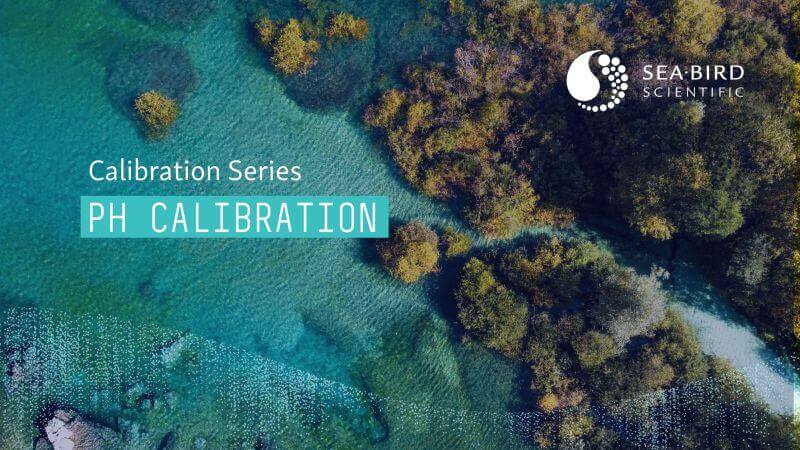

ISFET pH sensors, like the SeaFET V2 and SeapHOx V2, receive a factory calibration, and don’t require regular field maintenance. Learn how we’ve adapted our calibration facility to account for conditions these instruments meet in the wild.
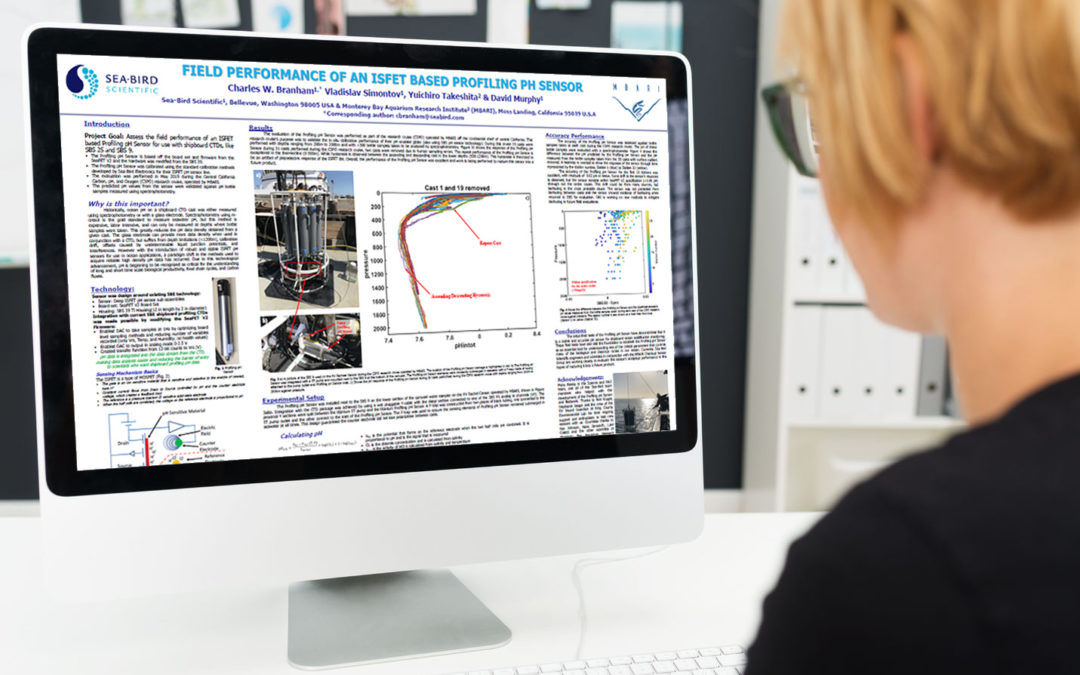
Missed us at Ocean Sciences 2020? Check out digital copies of our Science Team’s conference posters to learn more about what they are working on: Field Performance of an ISFET Based Profiling pH SensorCharles W. Branham, Vladislav Simontov, Yuichiro Takeshita &...
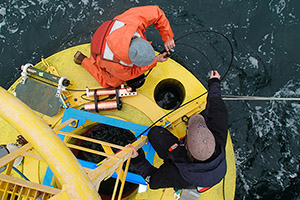
October 2019 Newsletter On October 31st, Sea-Bird Scientific presented a hands on technical training at the OCEANS ’19 conference in Seattle, WA. If you could not attend, watch a recording of our live webinar, presented on July 18th 2019, outlining how our latest line...
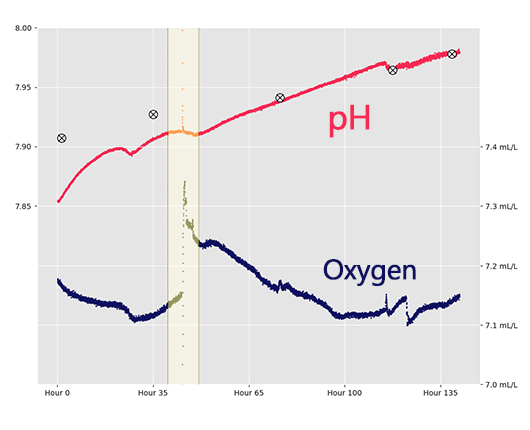
September 2019 Newsletter These data show a small but rather catastrophic deployment error. Shown above, pH and dissolved oxygen data before the highlighted area did not match bottle samples or nearby validation sensors, but data after the highlighted area accurately...
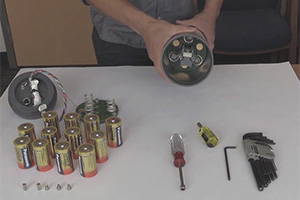
How long can you really trust your sensor to sip energy from its batteries? Properly selecting the right sample interval must strike a balance between a high-resolution dataset and a complete time-series. After some quick calculations, we’ve found the optimal sample...
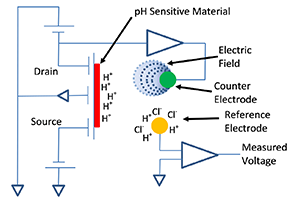
May 2019 Newsletter ISFET-based pH sensors have been used to measure pH in industrial settings for years (do you know the pH of your last beer?). It’s the adaptation of this technology for measuring ocean pH that makes the SeaFET V2 and SeapHOx V2 novel tools for the...
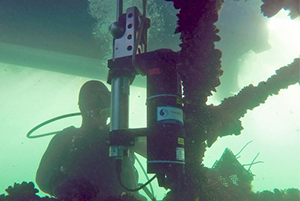
April 2019 Newsletter Sea-Bird Scientific’s line of ISFET pH sensors only communicate via RS-232. However, savvy integrators can utilize the SBE 44 Underwater Inductive Modem as the link between the SeaFET/SeapHOx and an existing inductive modem mooring, providing...
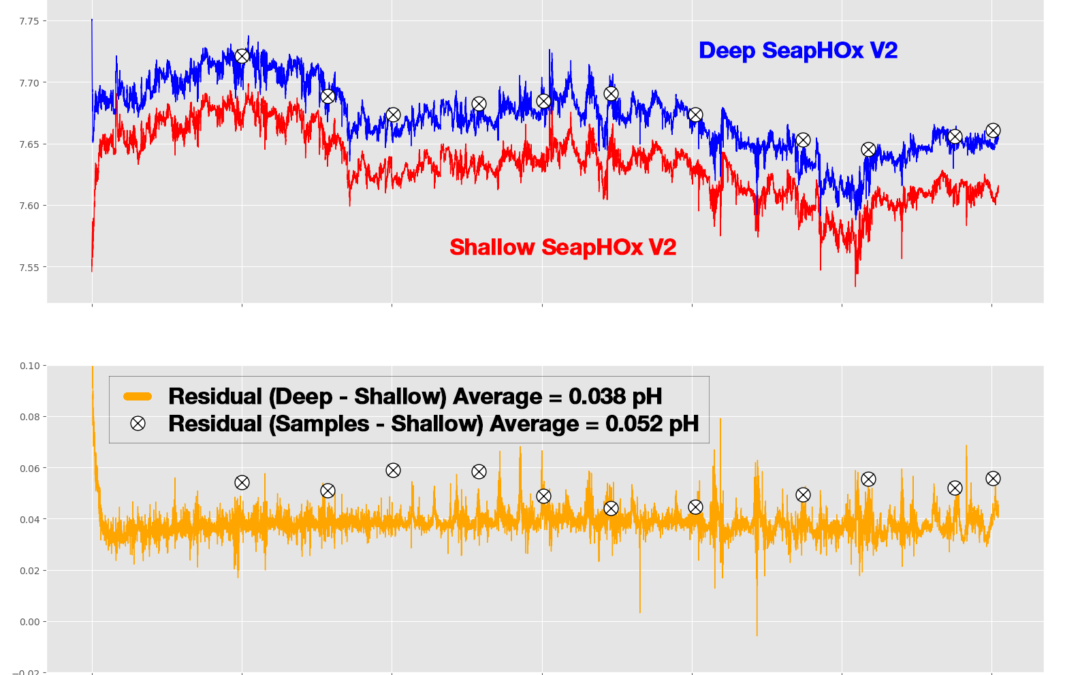
March 2019 Newsletter The data shown above come from a SeapHOx V2 (red) and Deep SeapHOx V2 (blue) deployed next to one another in a dynamic estuarine environment. Regular pH validation samples were collected throughout the time-series. According to the 0.05 pH...
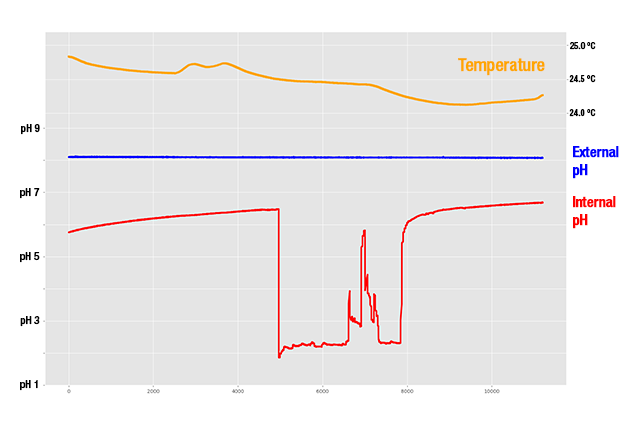
The data above originate from a SeaFET pH sensor connected to a flow-through system that should provide stable, consistent data. As you can see, the Internal pH value experiences a dramatic drop in pH and a subsequent increase in noise midway through data collection....
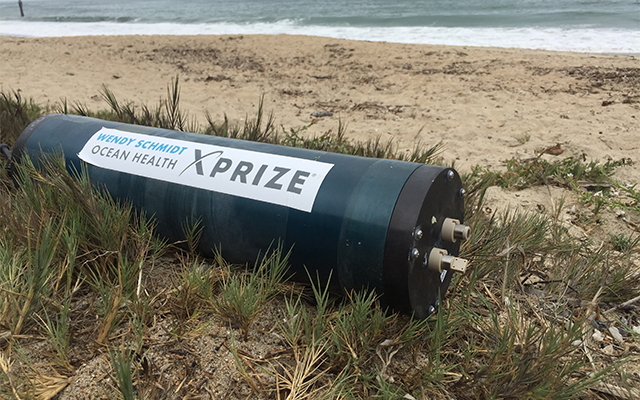
Although it’s barely the size of a breath mint, the Ag/AgCl reference allows the Deep SeapHOx V2 to dive deeper than any other pH sensor. Learn how a solid-state reference electrode allows the SeaFET V2, SeapHOx V2, and Deep SeapHOx V2 retain accuracy across a much...
We hope to see you at UG2 '24 We are excited to sponsor the upcoming 2024 Glider Workshop in Ann Arbor, Michigan, from September 10 - 12, 2024. Overview This workshop will bring together the global underwater glider community to strengthen international collaboration...
Press Release Wednesday, June 26 2024 Collaboration and partnership is at the core of what we do. We are - Enabling the science that matters - working with scientists and researchers across the globe to provide instrumentation that produces defensible and accurate...
Celebrating and honoring our LGBTQIA+ communities It is in our DNA at Sea-Bird Scientific to embrace community and the beauty in diversity. As during previous Pride Months, we have changed our logo on social media to feature the colors of Pride throughout the month of...